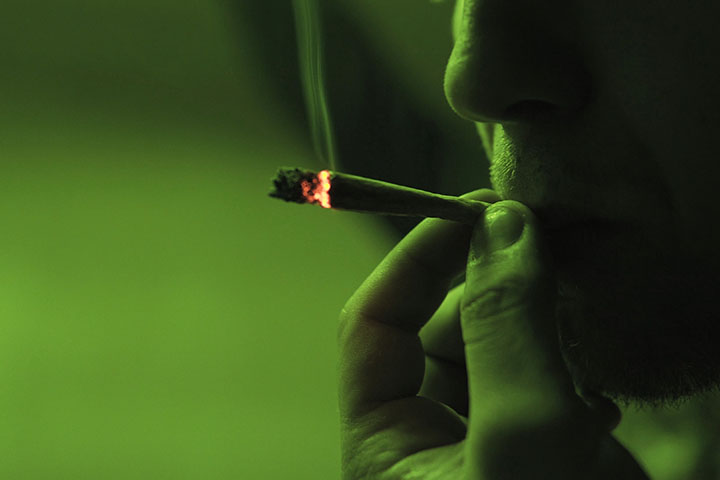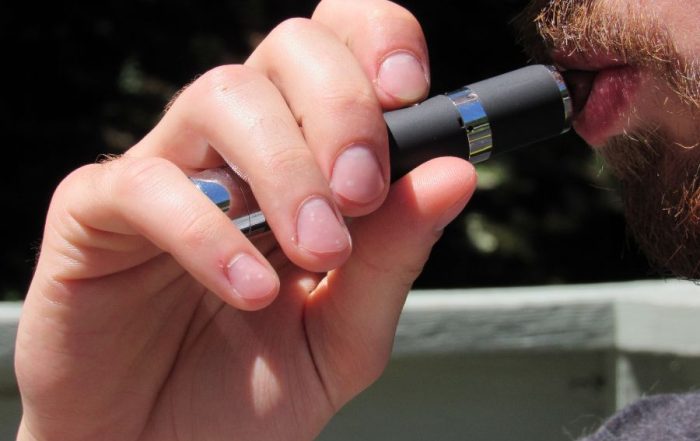3 Main Reasons Why Teens Use Drugs
As a substance abuse program for teens, we have found that teens have many reasons for using substances. These reasons can range from curiosity and wanting to have fun to more serious reasons such as using substances to deal with the pressure and stress of adolescent years. As a parent, it is important to know why teens use drugs and what you as a parent can do about it.
Why Teens Start Using Drugs
Adolescence can be a very complicated time for many young people as they often have many influences that impact whether they will start using substances. Adolescence is a huge milestone in human development as teens start going through major life changes during their teen years, and drug use can become a part of that process for some teens.
There are 3 main risk factors for why teens become interested in or start to use illicit drugs and alcohol.
- Fun
- Social factors
- Curiosity
1. Fun
Anonymous surveys of teenagers continue to show that the primary reason teens use drugs is to have fun. This is not to dismiss other emotional or social factors, but the fact remains – teens are generally looking to have a good time above all else.
This is especially true in teens that have other factors in their life that cause them to struggle to feel better sober.
The primary reason for this is that teens’ brains aren’t fully developed – our reward circuits for repeating behavior which we find enjoyable are fully developed in childhood, whereas our prefrontal cortex, responsible for regulating impulses, isn’t fully developed until around age 25.
The teenage years can be full of fun and thrills, but this tendency of teenagers to have fun at all costs can also work against them.
2. Social Factors
As teens grow out of childhood, their reliance on their parents as their sole source of logic and acceptance begins to shift. During this time, teenagers naturally become more concerned with what their peers think of them, rather than what their family thinks of them.
This is a natural transition that every teenager makes, but it also opens up many doors to risky behaviors.
We hear it again and again from the teens in our program: “Once I tried drugs, I gained a host of new friends, and became cool at school!”
The fact remains, if other teens in a young person’s peer group use drugs, then that young person is far more likely to try drugs themselves.
3. Curiosity
Naturally, teens are curious about all sorts of aspects of life as they begin to experience more independence, identity and learn more about themselves and the world around them. It’s a time in life when we all naturally begin to test the boundaries of acceptable behavior.
This is an important developmental period, but it can also backfire for many teens. During this time, teens are figuring out what they can get away with but how much independence they can handle. This can lead them to be curious about trying substances.
Factors that influence why teens use drugs
There are many different reasons that teens use drugs and alcohol, there is never one single reason but usually a collective of multiple reasons that can lead teens to use substances. Some of the reasons for teen drug use include:
Social and Societal Influences
- Social influence: Whether it’s a sibling, a cousin, or a friend; or whether it’s the normalization of substances in society; there are many different social and societal factors that influence teen drug use.
- Peer Influence: Psychology Today states that in the adolescent period, there is an increased interest in peer relationships. As a result of this increase in interest, teens may feel pressured to fit in more or avoid rejection in their social circles which can result in trying drugs and alcohol.
- Influence of social media: It’s no question that social media has had a large impact on society as a whole and teens can easily be a target for the influence of social media. Social media often normalizes alcohol and drug abuse, and this normalization can influence teenagers and young people to partake in using illegal substances.
Emotional influences
- Mental Health: As teenagers, there are many different pressures and stress, and they can exaggerate or cause different mental health issues such as depression and anxiety to arise if not properly addressed. Many teens and young people look to using drugs and alcohol to self-medicate for these issues.
- Insecurity: Many teens experience some level of insecurity and inadequacy as they begin high school and go through the transition from childhood into adolescents. Without proper skills to deal with these feelings’ teens may look to substances to cover them up and feel more confident.
- Instant Gratification: As someone comes across obstacles in life, they learn through experience how to deal with them. However, teenagers often lack the skills to work through problems because they have never experienced them before. Using drugs gives the instant gratification of feeling good, without having to do any of the hard work it takes to deal with the problem. Which can ultimately lead to drug addiction if they continue to seek instant gratification.
Adolescent Brain Development
- Risk-Taking Behaviors: Teens are predisposed to risk-taking behaviors for a multitude of reasons. The biggest is that their brains aren’t fully developed which can result in an increase in risk-taking behaviors, including the use of substances.
- Pressure and Stress: Adolescence is a difficult time for many and can be overwhelming due to the large amount of pressure and stress. As a result of the brain not being fully developed, teenagers often have poor responses to the stress as they are unable to logically respond to their emotions and drugs can serve as a way for teens to escape the stress of all the pressure and overwhelming emotions.
What Parents Can Do to Prevent Teen Drug Use
There are many things that parents, teachers, caregivers, and doctors can do to help teens avoid developing substance use disorder:
1. Development of Positive Tools
Teens often lack proper social skills and coping mechanisms. They also tend to have a poor understanding of the reward pathways involved in working through social and emotional problems.
Many people naturally learn these skills through trial and error, but drug use can seem like a quick fix to many of these problems, alluring teens to be more open to trying them. However, teen substance abuse can stunt the development of these skills.
It’s important to help your teen develop positive coping mechanisms and social skills. There are many ways to do this.
- Be a positive role model: Using positive skills to deal with your own stress and emotions can trickle down to your teen and help them to learn how to deal with emotions and stress in a positive way
- Positive communication: Often having open communication with your teen can help them to develop proper social skills that they may reciprocate in their peer relationships
- Educate your teen: Educating your teen on the reward of working through their problems can have a huge impact on the issue of instant gratification and can help them to gain long-term positive rewards from doing the work to deal with their social and emotional problems
2. Positive Activities for Teens
As discussed earlier, having fun is indispensable for teens and it is a need they will try to satisfy, one way or another.
We have found that rather than try to convince teens not to use drugs, it’s far more productive to present them with a “suitable alternative.” This is a core tenet of our teen substance abuse program.
and can be a key factor in developing a fulfilling life.
3. Rules and Boundaries
Sometimes talking to your teen about the dangers of substance use isn’t always effective and teenagers can make risky decisions despite their better judgment. It is important that parents respond appropriately by creating boundaries and rules to help guide them in the right direction.
- Supervise your teen’s interactions with peers
- Limiting opportunities for them to indulge in drug use
- Create solid rules for them and consequences for breaking those rules
Rules and boundaries also have a positive effect on teens as it provides a sense of stability for them during a very fragile time, having proper boundaries can help them to navigate adolescence in a positive manner.
Moving forward from drug use
There are many reasons why teens use drugs, ranging from peer pressure, stress, mental health issues, curiosity, and even the desire to fit in with a particular social group. Whatever the reason may be, it is important for parents, caregivers, educators, and healthcare professionals to be vigilant and to provide teens with the necessary support and resources to help them avoid drug use.
This includes open communication, education about the risks and consequences of drug use and the reward of positively working through social and emotional issues, and providing a supportive environment that fosters healthy coping mechanisms and positive activities.







